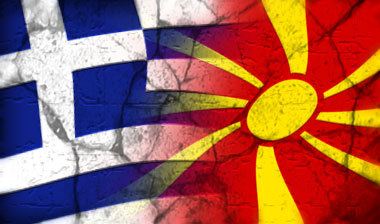
reuters
Nov 19, 2010 11:40 EST
“What’s in a name?” asked love-struck Juliet by way of justifying her love for Romeo, whose Montague family was so loathed by the Capulets.
For Macedonia, rather a lot.
The name has been fought over by Greece and “The Former Yugoslav Republic of Macedonia” for nearly two decades. Now European Union diplomats are telling them to ask for mediation help from the bloc. It may be the only chance, they say, for the two countries to solve a dispute that is preventing Macedonia from joining NATO and starting accession negotiations with the EU.
After a decade of talks facilitated by the United Nations to try to get the two to agree a new name for the former Yugoslav state, there is little sign of progress. EU diplomats argue that closer involvement in the talks by, say, the EU’s executive Commission or representatives of its new diplomatic service, might help the two come to an agreement.
The lack of progress frustrates some officials in Brussels, who say it sends the wrong signal to the rest of the EU-bound Balkans. It tells them that bilateral disputes can effectively block the Commission as it steers the bloc’s enlargement policy. Having officials from Brussels directly involved in talks would make it easier to use EU policies as ‘carrot and stick’ to coax the two capitals towards agreement, they say. “The EU is the missing link,” one EU official said recently.
At the core of the dispute is the insistence by Athens that Skopje has usurped a name that implies a claim on Greece’s own region of Macedonia. A U.N.-brokered deal in 1995 allowed the newly independent Balkan state to join the United Nations under the temporary designation “The Former Yugoslav Republic of Macedonia”. A fair amount of diplomatic creativity followed. Its envoys have sat at U.N. meetings between representatives of Thailand and Togo — the country name being considered to start with “The”. A handful of proposals for a new name have been circulated, mostly tacking on a descriptive word such as ‘Upper’ or ‘Northern’ to the name Macedonia. Other suggestions included Democratic Republic of Macedonia, Constitutional Republic of Macedonia, Independent Republic of Macedonia and Republic of New Macedonia.
But the two capitals have dug in their heels, even though both say publicly they want a solution. The latest round of talks between Macedonian and Greek leaders, who met in Brussels in October, produced no result so far.
The idea of asking the EU for help has won little airtime in Athens. And Macedonian Prime Minister Nikola Gruevski, when asked about the matter on a visit to Brussels this week, appeared hesitant. “The official mediator is the United Nations and it’s doing the job very well,” he told reporters on the sidelines of a seminar organised by conservative members of the European Parliament.
EU diplomats say bringing a new player into the game may be unpalatable to the United Nations, because it could amount to conceding defeat and requiring some kind of exit strategy. But they point out that EU mediation in the Balkans has had some success in recent months. For example, the bloc’s foreign policy chief, Catherine Ashton, has convinced Serbia to soften its stance towards Kosovo, a major turnaround in Belgrade’s policy that has given a boost to Serbia’s EU hopes. Perhaps, a similiar diplomatic success will be possible for Skopje.
read more: reuters
Δεν υπάρχουν σχόλια:
Δημοσίευση σχολίου